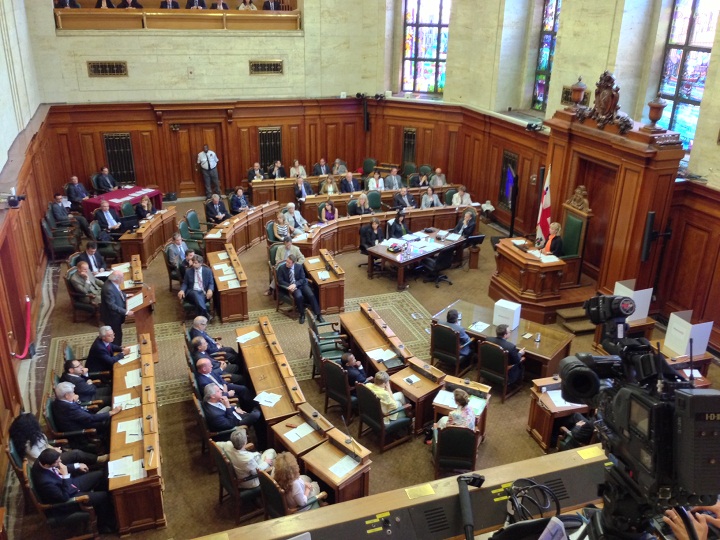In Montreal mayoral race, broad promises outnumber concrete proposals

Despite all four candidates in Montreal’s mayoral contest having been in the race for several weeks now, few voters could tell exactly what any of them stand for.
That’s not merely due to the citizenry paying little attention to municipal politics in the middle of summer. When it comes to candidates spelling out their electoral programs, there is, quite simply, a dearth of information.
Former MP Denis Coderre, who led the last publicly-released voting intention poll in May, has in recent days made news when high-profile Montreal political players joined his team. New members of Coderre’s group include City Council Chairman Harout Chitilian and Côte-des-Neiges—Notre-Dame-de-Grâce mayor Lionel Perez.
The perceived mayoral frontrunner’s website, however, is short on policy prescriptions. It currently contains three basic proposals: creating an inspector general position, turning Montreal into a “smart city,” and getting up-to-date data on homelessness. Coderre’s press secretary, Isabelle Perreault, told Global News that the platform’s general orientations were already available, and that more information would be released on the candidate’s website as the campaign goes on.
Marcel Cote’s Coalition Montreal website offers a wide array of global propositions. So global, in fact, that hardly anyone could object to them: “look for ways to improve efficiency”; “encourage entrepreneurship”; “make the existing structures work better,” among others.

Get breaking National news
Nowhere on the site, however, is there any outline of how the candidate and his team would go about accomplishing these goals.
The site also promises to eventually include position statements on the issues of culture, economic growth, shared living space and the creation of “a major metropolis” – but contains nothing else at this time.
As for Richard Bergeron’s Projet Montreal, which placed third in the 2009 election, the list of propositions is long.
Projet Montreal notably promises to “make the borough council more accountable,” “encourage citizen participation,” “review noise pollution policy,” “reduce visual pollution”, “reduce light pollution,” “de-concretize the City,” “spend more wisely,” and “uncover new ways of financing.”
The party’s program does not specify how it would actually go about doing any of these things.
The race’s other hopeful, Melanie Joly, does not yet have a website. In an interview with Global News, her press secretary Frederic Lepage announced that one would be up within the next few days.
“Some, but not all measures will be available” on the website when it launches, Lepage said. “Figures will be made public when the financial framework is unveiled,” which will most likely not occur until September.
The limited amount of information released is noteworthy in the context of the campaign’s first official debate being scheduled for next week.
Alexandre Warnet of the Institut du Nouveau Monde, which is sponsoring the event, said that the debate format would be announced shortly.
While there will be no “mechanism” forcing candidates to present their proposals’ fine print, Warnet said he expected that periods of direct exchanges between mayoral contenders could push them to reveal more of their plans.
The debate will take place on Friday, August 16, at the Universite du Quebec a Montreal (UQAM)’s Sherbrooke Street Pavilion.
Representatives from the Cote and Beregeron campaigns were not available for comment.








Comments